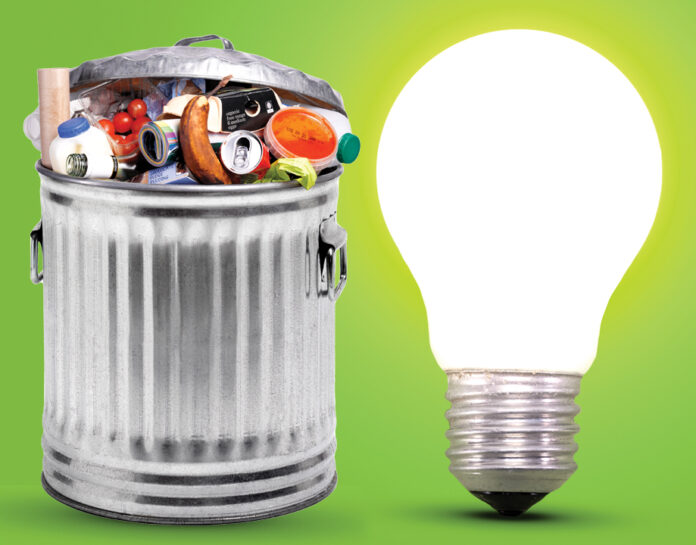
Introduction
Waste to energy initiatives have gained significant attention in municipalities around the world as an innovative solution to manage and repurpose waste while generating revenue. This article provides an overview of waste to energy in municipalities, highlighting its historical background, key concepts and definitions, main discussion points, case studies, current trends and developments, challenges and controversies, future outlook, and the overall importance of waste to energy in turning trash into revenue.
Historical Background
The evolution of waste to energy initiatives in municipalities can be traced back to early attempts at waste management and disposal. As the volume of waste increased, municipalities began exploring alternative methods to reduce landfill dependency and mitigate environmental concerns. The adoption and implementation of waste to energy technologies marked a turning point in waste management practices, offering a sustainable and profitable approach to waste disposal.
Key Concepts and Definitions
Waste to energy refers to the process of converting municipal solid waste into usable forms of energy. Municipal solid waste includes a wide range of waste materials generated by households, commercial establishments, and institutions. Waste to energy technologies enable the extraction of value from municipal solid waste, reducing waste volumes, and producing renewable energy. The revenue generation potential of waste to energy is a significant factor driving its adoption in municipalities, as it provides financial benefits and contributes to sustainable waste management practices.
Main Discussion Points
Overview of different waste to energy technologies:
- Incineration: Involves the combustion of waste at high temperatures, producing heat and energy.
- Anaerobic digestion: Utilizes microorganisms to decompose organic waste, generating biogas and organic fertilizers.
- Gasification: Converts carbon based waste into synthetic gas for electricity and heat production.
- Pyrolysis: Involves the thermal decomposition of waste in the absence of oxygen, producing bio oil, gas, and char.
Environmental and economic benefits of waste to energy in municipalities:
- Reduction of landfill waste: Waste to energy technologies divert waste from landfills, reducing environmental pollution and greenhouse gas emissions.
- Generation of renewable energy: Waste to energy plants produce electricity and heat from waste, contributing to sustainable energy production.
- Job creation and economic growth: Waste to energy projects create employment opportunities and stimulate local economies through revenue generation and resource recovery.
Case Studies or Examples
Municipality A successfully implemented incineration technology, significantly reducing landfill waste and generating electricity for the local grid. The utilization of anaerobic digestion in Municipality B proved to be an effective revenue generation strategy, producing biogas for energy generation and organic fertilizers for agricultural use.
Current Trends or Developments
The integration of advanced technologies in waste to energy plants is a notable trend, enhancing efficiency and reducing environmental impact. Additionally, there is a growing emphasis on resource recovery and circular economy principles, aiming to maximize the extraction of valuable materials from waste. Research findings on the environmental impact of waste to energy continue to shape and improve the industry’s practices.
Challenges or Controversies
Public perception and concerns about emissions and health risks pose significant challenges to the widespread acceptance of waste to energy technology. The economic feasibility and cost effectiveness of waste to energy projects also raise questions regarding the financial viability of implementing such initiatives. Opposition from environmental groups further adds to the controversies surrounding waste to energy.
Future Outlook
The potential for increased adoption of waste to energy technologies globally is promising, as municipalities seek sustainable waste management strategies. The integration of waste to energy in these strategies will play a crucial role in achieving environmental goals and reducing dependence on landfills. Continued innovation and advancements in waste to energy technologies will further enhance its effectiveness and viability.
Conclusion
Waste to energy in municipalities offers a sustainable and economically viable solution to manage waste while turning it into a valuable resource. By exploring various waste to energy technologies, understanding their environmental and economic benefits, and addressing associated challenges and controversies, municipalities can embrace waste to energy as a means to generate revenue, promote sustainable waste management, and contribute to a greener future.
References
- Smith, J. R., & Brown, L. (Eds.). (2022). Waste to Energy Technologies: Sustainable Waste Management and Renewable Energy Production. Springer.
- Zhang, D., et al. (2021). Waste to energy technologies: A promising solution for municipal solid waste management. Journal of Cleaner Production, 276, 124426.
- Hoornweg, D., et al. (2019). Waste to energy benefits, risks and trade offs: Opportunities for Australia. Energy Policy, 128, 653 662.